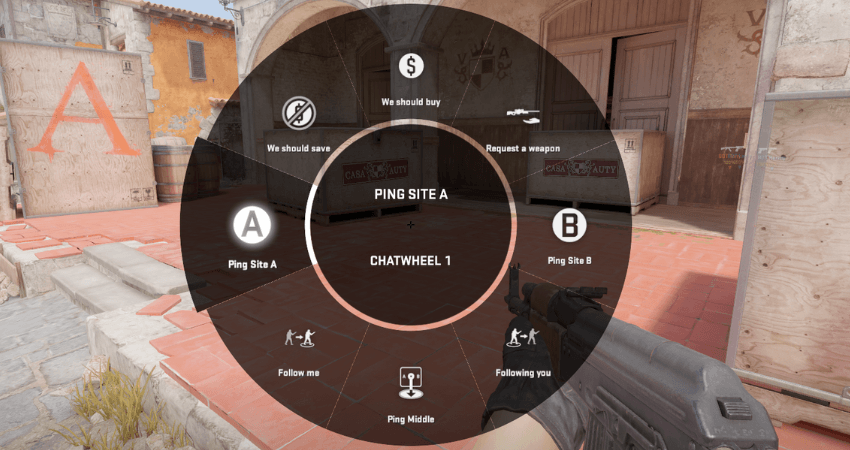Daily Wonders and Discoveries
Explore the latest news and intriguing insights from around the world.
CS2 IGL Mysteries: The Mind Games Behind Every Round
Uncover the secrets of CS2 IGL strategies! Dive into the mind games that shape every round and elevate your gameplay to the next level.
Understanding the Role of an IGL in CS2: Strategies Behind the Mind Games
In Counter-Strike 2, the In-Game Leader (IGL) plays a critical role in shaping the team's strategy and overall performance. The IGL is responsible for making real-time decisions, communicating effectively with teammates, and adapting tactics based on the flow of the game. One of the key aspects of an IGL's responsibility is to manage the team's resources, including weaponry and utility, thereby maximizing their potential during each round. A strong IGL continually assesses the strengths and weaknesses of both their own team and the opponents, allowing for tactical adjustments that can turn the tide of a match.
Moreover, the psychological aspect of being an IGL cannot be overlooked. Mind games play a significant role in competitive play. The IGL must not only lead the team but also engage in strategic deception to outsmart the opposition. This may involve feigning aggression, rotating players unexpectedly, or setting up bait plays to lure opponents into traps. The best IGLs possess a unique blend of tactical acumen and psychological insight, allowing them to bluff or lead enemies into making mistakes. Understanding these dynamics and executing well-timed strategies is essential for any team's success in CS2.

Counter-Strike, a popular series of competitive first-person shooter games, has captivated gamers worldwide with its strategic gameplay and team dynamics. One of the exciting aspects of the game is the customization options, particularly the CS2 Weapon Skins, which allow players to personalize their in-game weapons.
Decoding the Psychology of CS2: How IGLs Influence Team Dynamics
The role of In-Game Leaders (IGLs) in Counter-Strike 2 (CS2) is pivotal, as they serve as the backbone of team strategy, communication, and morale. Understanding the psychology of IGLs helps us decode how they influence team dynamics. An effective IGL not only coordinates gameplay but also fosters an environment where each player feels valued and empowered. This psychological framework becomes especially critical during high-pressure situations, where the ability to make split-second decisions and maintain team cohesion can determine the outcome of a match. In CS2, IGLs often rely on their intuition and experience to read not only the game state but also the mental state of their teammates, adjusting strategies accordingly to enhance performance.
Moreover, the influence of IGLs transcends tactical execution; it shapes the team's overall mindset. A skilled IGL instills confidence, encourages open communication, and builds trust among players. These elements are essential for fostering a strong team dynamic. Consider the following key aspects that illustrate the IGL's impact:
- Communication: Clear and concise directives help reduce confusion during gameplay.
- Moral Support: Motivating teammates to overcome setbacks and maintain focus.
- Adaptability: Adjusting strategies based on opponents’ tactics, which requires quick thinking and situational awareness.
10 Key Mind Games Every CS2 IGL Must Master for Success
In the rapidly evolving world of Counter-Strike 2 (CS2), effective in-game leadership (IGL) transcends mere strategy and mechanics; it demands a mastery of various mind games. To excel in this competitive landscape, IGLs must be adept at psychological warfare, as their decisions affect the team's morale and performance. Here are 10 key mind games that every CS2 IGL must master for true success:
- Bluffing: Effectively mislead opponents into underestimating your team's capabilities or intentions.
- Reading the Opponent: Analyze their patterns to predict their next moves and counter them.
- Fake Calls: Utilize decoy strategies to divert attention and create openings for actual plays.
- Adaptability: Adjust strategies on-the-fly based on the evolving dynamics of the game.
- Team Confidence: Instill a strong belief in your team's potential to shape their performance.
- Pressure Tactics: Apply mental pressure on opponents to induce mistakes and capitalize on them.
- Communication Control: Manage in-game communications to maintain clarity and reduce panic during crucial moments.
- Persistence: Encourage perseverance in your team, even when things look bleak to foster resilience.
- Emotional Management: Help your team keep emotions in check, especially in high-stress situations.
- Strategic Sacrifice: Know when to lose a round strategically to set up a more advantageous position later.